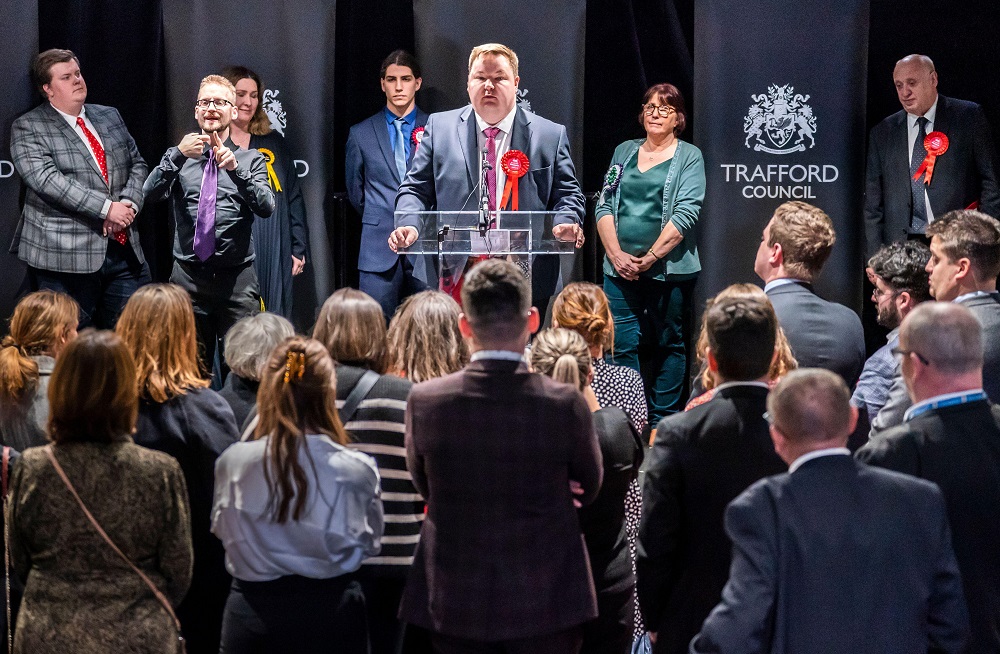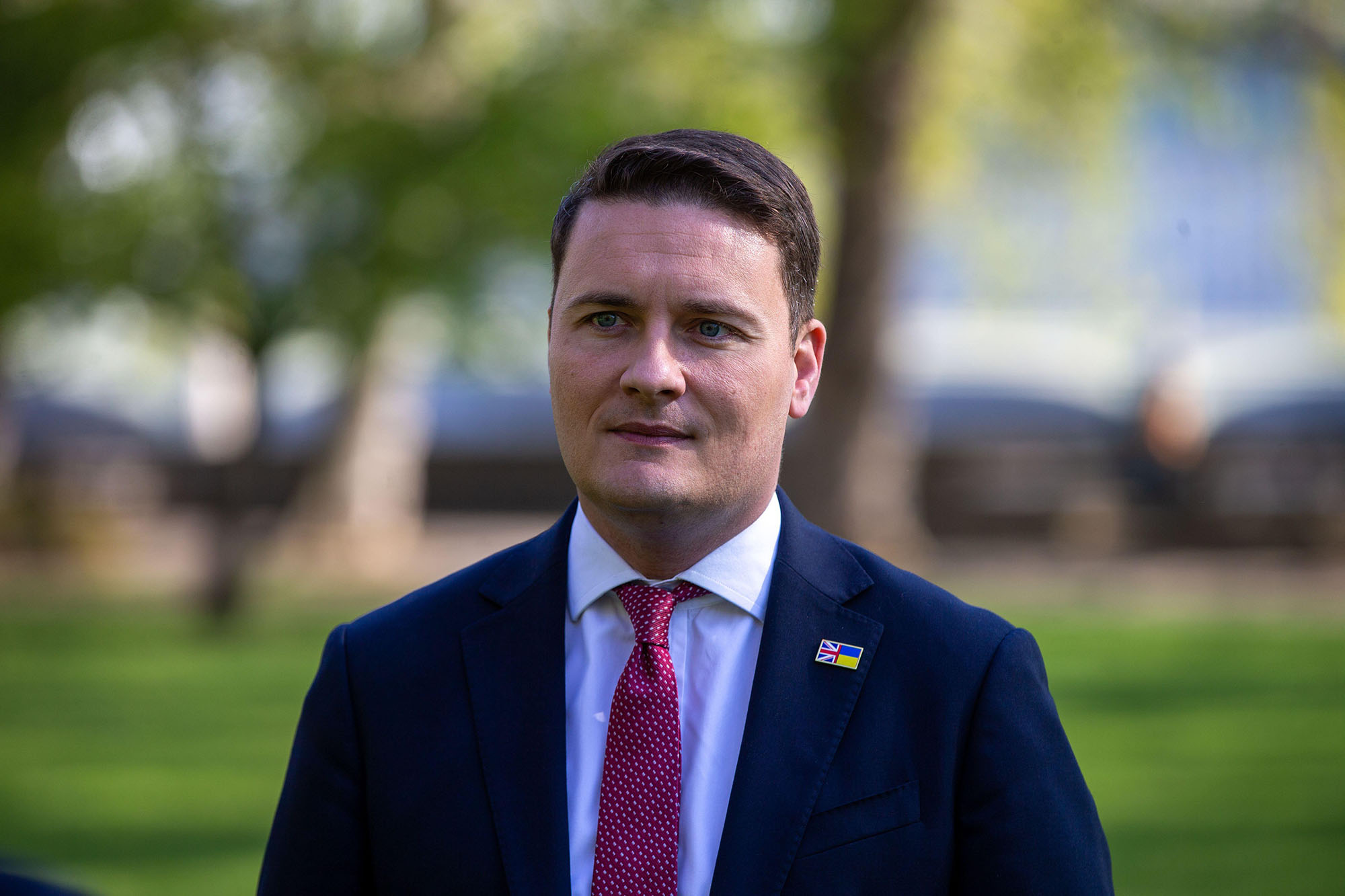RMT Calls Pay Offer “Completely Inadequate”, Labour Lead Mirrors 1997 Landslide, Operations Cancelled Due To Nurses' Strikes
Mick Lynch at a picket line outside Euston Station (Alamy)
5 min read
Mick Lynch, the general secretary of the RMT union, has called the pay deal on offer to rail staff “completely inadequate” after the Transport Salaried Staffs Association (TSSA) accepted the deal.
85 per cent of TSSA members reportedly backed the deal, which includes a minimum 9 per cent pay rise by January, job security for staff until 2025, and guarantees on terms and conditions.
A similar deal was last week rejected by the RMT union, which began its second 48-hour strike on Thursday.
Commenting on the TSSA’s decision, Lynch told Sky News: "They are independent unions, I am not involved in those unions, it is up to them, they make their decisions.
He insisted that “the offer for us is a different offer” and claimed the TSSA has “a different collective bargaining arrangement” to the RMT.
He added: "We will keep working it up on behalf of our people. It is often the way on the railway that the RMT has to lead and others follow or drop out of the disputes at early stages.
“That has been the way for a century and a half so far, so it will probably continue into the future."
Speaking from a picket line outside Euston Station, Lynch called the pay deal offered to the union "completely inadequate".
"For our members the proposals are completely inadequate at this time but we will keep working with Network Rail and the [train operating companies] in order to get some solutions and that is what we are aiming to do over the next period."
Polling expert compares current Labour lead to 1997 landslide victory
 Labour won the Stretford and Urmston by-election with a majority of almost 10,000 (Alamy)
Labour won the Stretford and Urmston by-election with a majority of almost 10,000 (Alamy)
Leading pollster Professor Sir John Curtice has compared Labour’s current lead over the Tories to the 20-point lead they held in the run up to their 1997 landslide victory.
He told BBC Radio 4's Today programme that there had been a “bounce” for the Conservatives in the polls, but that Labour’s lead has now “stabilised” at around 20 points.
"That is the kind of lead for Labour that we have not seen in the opinion polls since the [1992] to [1997] Parliament, when of course Conservative fortunes never recovered from Black Wednesday in September 1992,” he added.
Professor Curtice said the “big difference” at the moment was the change in prime minister, as John Major stayed on after the 1992 election while the current Conservative’s have had three prime ministers in a year.
“We are therefore in uncharted territory and the question we are asking ourselves is: can Rishi Sunak as a Prime Minister, in the end, persuade voters to ignore what happened in the Liz Truss administration?"
He went on to say that the results of both the Stretford and Urmston by-election, which Labour won with a nearly 10,000 vote majority this week, and the Chester by-election earlier this month show that Labour is in its strongest position in over a decade.
“If you take Stretford and Chester together, they basically are consistent with the evidence of the opinion polls, which is that Labour are now in a stronger position than they have been at any point since David Cameron walked through 10 Downing Street as prime minister in 2010,” he continued.
"Therefore the challenge that the Conservatives are facing is certainly a very substantial one."
Up to 60 per cent of routine operations cancelled due to nurses strike
 (Alamy)
(Alamy)
The historic nurses' strike on Thursday led to around 40 to 80 per cent of routine operations being cancelled, the head of NHS Providers has claimed.
The body’s interim chief, Saffron Cordery, told BBC Radio 4's Today programme that it was getting “increasingly difficult” for trust leaders to manage the impact of the strikes as “winter is always a very tricky time in the NHS”.
"Coming alongside an ambulance strike on the following day, I think it's going to be a very challenging time next week,” she continued.
She added that they had already seen some “pressure points” in some emergency departments, and that she estimated that “around 40 to 60% of those routine operations have been cancelled in places where the strikes were held”.
“It's fair to say that there's been a relatively significant impact and I think it was a very demanding day overall, on the front line in the NHS,” Cordery added.
Health minister Maria Caulfield told Sky News on Thursday that time for around 70,000 appointments, procedures and surgeries “will be lost” as a result of the strikes.
Wes Streeting to set out how Labour would double medical school places
 Wes Streeting is speaking at the launch of a new report by conservative think tank Policy Exchange (Alamy)
Wes Streeting is speaking at the launch of a new report by conservative think tank Policy Exchange (Alamy)
Shadow Health Secretary Wes Streeting will outline how Labour would deliver its promise to double the number of medical school places to 15,000 per year by 2029.
He is speaking at the launch of a new report this morning by conservative think tank Policy Exchange, which suggests that opening more new medical schools and using virtual work placements could provide an additional 45,000 doctors for the NHS by 2040.
The Mirror revealed last month via a leaked email that Chancellor Jeremy Hunt privately backed Labour’s flagship health plan to double the number of medical school places.
Hunt wrote in an email to supporters of a patient safety charity he founded: “The medical school place increase is something I very much hope the government adopts on the basis that smart governments always nick the best ideas of their opponents.”
The Policy Exchange report, named ‘Double Vision’, says it would be “unsustainable and unethical” to continue relying on doctors from developing countries to meet the UK’s shortage of medical staff.
A Labour official told Politico’s London Playbook: “You can tell the Conservative government’s time is up when even its most loyal think tank is looking to Labour for the ideas of the future.”
